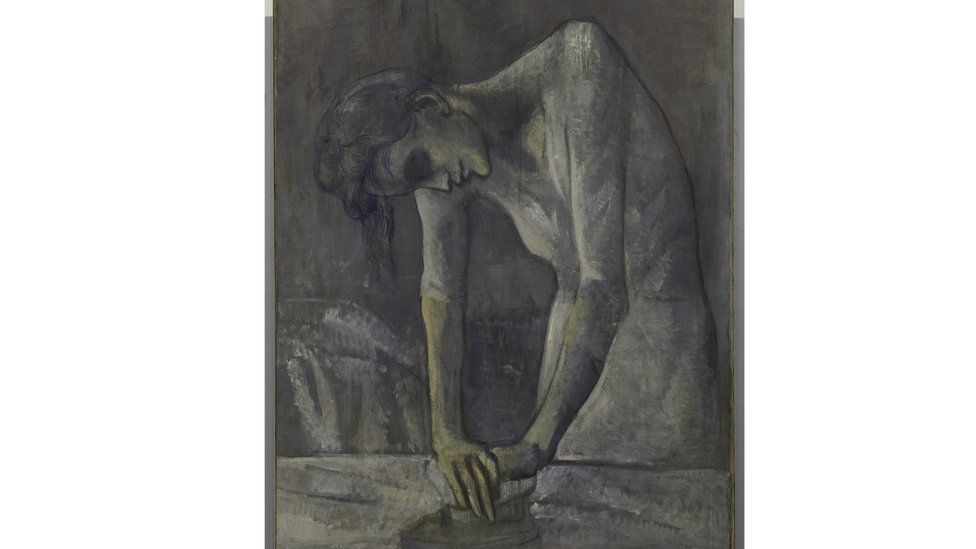ARTICLE AD BOX
 Image source, Pablo Picasso / Guggenheim Museum, New York
Image source, Pablo Picasso / Guggenheim Museum, New York
Woman Ironing (La repasseuse) by Pablo Picasso. Paris, 1904. Solomon R. Guggenheim Museum, New York
By Robin Levinson-King
BBC News
In 1938, fearing for their lives amid rising Jewish persecution, Karl and Rosi Adler fled Nazi Germany for then-unoccupied Europe.
In order to pay for their short-term visas, they sold one of their prized possessions - a 1904 painting by Pablo Picasso called Woman Ironing.
That painting eventually made its way into the collection of the Solomon R Guggenheim Museum in New York City.
Now, the heirs of the Adlers want the painting back.
"Adler would not have disposed of the painting at the time and price that he did, but for the Nazi persecution to which he and his family had been, and would continue to be, subjected," lawyers for the heirs wrote in a lawsuit filed in a New York City court last week.
Several Jewish organisations and non-profits are also named as co-plaintiffs in the suit.
The painting was originally bought from Heinrich Thannhauser in 1916, a Jewish gallery owner living in Munich at the time.
When the Adlers fled Germany, they sold the painting back to Thannhauser's son, Justin, who had already left the country for Paris, for approximately $1,552 (roughly $32,669 today, or £26,417).
That price, the suit argues, was far below market value - just six years before, Adler had offered the painting for about $14,000, but decided not to sell it.
Soon after acquiring the painting, Thannhauser insured it for $20,000.
Thannhauser left his large art collection to the Guggenheim when he died, including Woman Ironing. Prior to his death, as part of the museum's research process to confirm the painting's provenance, the Guggenheim reached out to Eric Adler, the son of Karl and Rosi, the museum said in a statement to the BBC.
Mr Adler "confirmed the dates of his father's ownership, and did not raise any concerns about the painting or its sale to Justin Thannhauser", and the museum has repeatedly acknowledged the elder Adler's previous ownership, the statement said.
The painting has stayed in the collection to this day, and went unchallenged by descendants of the Adlers for decades, until 2014, when the grandson of one of the Adler's other children, Carlota, learned about his family's history with the painting.
For several years, lawyers for the Adler heirs and the Guggenheim went back and forth over who actually owned the painting, which culminated in this lawsuit.
Guggenheim told the BBC it "takes provenance matters and restitution claims extremely seriously" but "believes the claim to be without merit".
What to do with artworks sold or looted during Nazi-era Germany has long been a concern. Many Jews and others fleeing persecution were forced to sell assets, including treasured works of art, in order to flee. Others had their artwork outright stolen.
In 1998, 44 nations signed the Washington Principles on Nazi-Confiscated Art, which says that "steps should be taken expeditiously to achieve a just and fair solution, recognising this may vary according to the facts and circumstances surrounding a specific case".
Woman Ironing, however, should not be considered a piece of Nazi-Confiscated Art, the Guggenheim said.
The painting was not sold in Germany, but after the Adlers had left, and it was sold to a Jewish art collector, not a member of the Nazi Party, the museum noted.

 1 year ago
87
1 year ago
87








 English (US) ·
English (US) ·